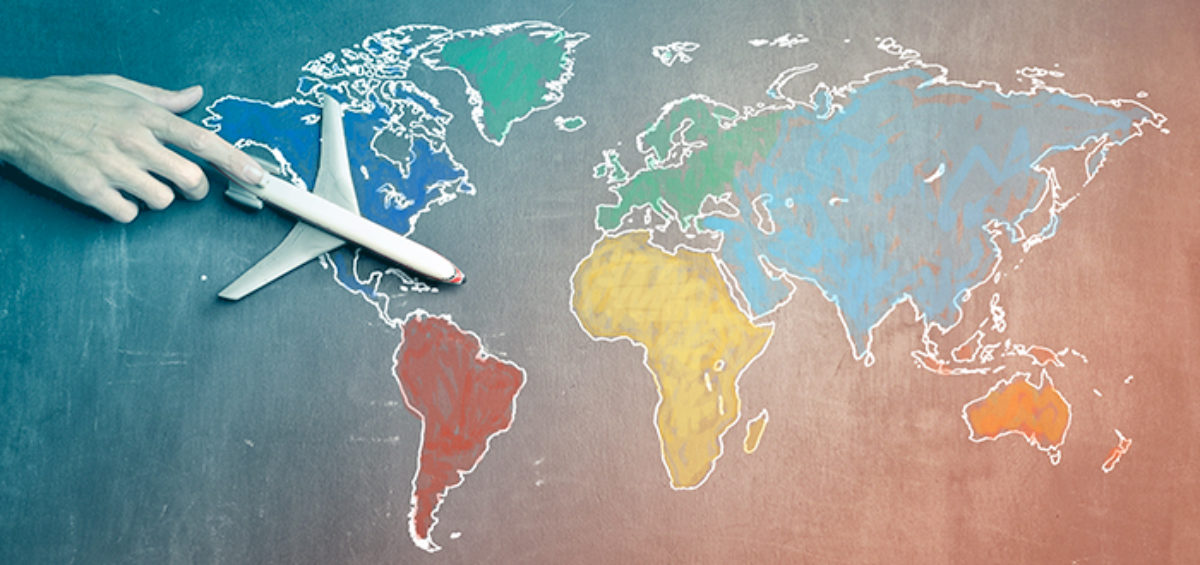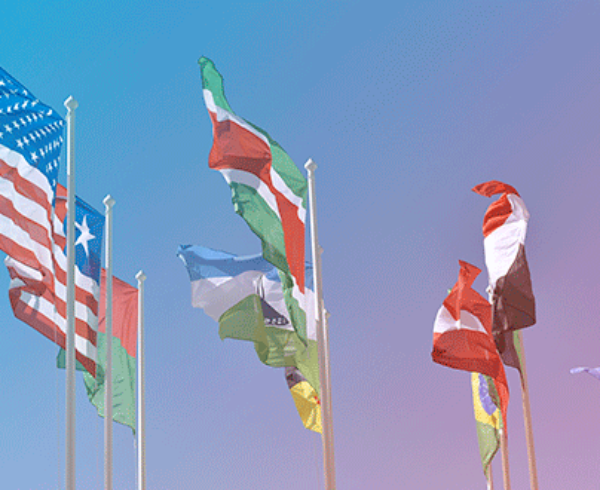In years past, travel industry experts have predicted the future based on a range of economic and societal factors. When looking at 2021, the continuing pandemic makes any global travel forecast far more uncertain.
In spring 2020, most businesses stopped traveling entirely. The COVID-19 pandemic put the brakes on work trips, and we’re likely to experience the reverberations of that stoppage for years to come. So what type of global travel forecast can companies expect as they look at 2021 planning?
While there’s less certainty in the 2021 global travel forecast than in years past, there are emerging trends that Travel Managers and Executives can use to inform travel decisions. Here’s a look at some of those trends as they relate to airlines, hotels and ground transportation.

Air Travel Forecast for 2021
Few industries have suffered as much as air travel during the coronavirus outbreak. As the virus spread around the world, both leisure and Business Travelers postponed or cancelled travel plans, emptying out airports and leaving carriers to fly planes at far less than capacity.
A new report by the International Air Transport Association (IATA) suggests it will be years before the air travel industry recovers. Passenger revenue per kilometer (RPK) fell by more than 50% in 2020 when compared to 2019. Projections indicate that RPK won’t reach 2019 levels again until 2023.
This is terrible news for the carriers, but there could be a silver lining for Business Travelers. Airlines will be desperate to encourage passengers to return to air travel in the coming months and years, so expect prices to fall to attractive levels. Also expect passengers to return to domestic flights sooner than they return to international flights, meaning the cost of international air travel may remain lower for a longer period of time.
The U.S. Travel Association (UTA) has issued a global travel forecast that supports the 2023 horizon for recovery. According to the UTA, total travel spending in the U.S. has dropped 44.8% in 2020. Its forecast predicts a 37.5% increase in travel spending in 2021, followed by a 14.2% increase in 2022. But it won’t be until a predicted 7.4% increase in 2023 that the travel industry can consider itself recovered. Even then, total travel spending will remain slightly below its 2019 levels.
Hotel Travel Forecast for 2021
Hotels aren’t any better off than airlines. Tourism Economics reports that demand for hotels fell 38.9% in 2020 and that occupancy fell 39.7%. In 2021, Tourism Economics expects demand to increase 32.2% and occupancy to increase 30.5%. While these rebounds are comforting for operators in the hotel industry, they still fall short of 2019 levels — suggesting hotels can expect the same multi-year recovery that air carriers are facing.
Again, the challenges faced by hoteliers represent an opportunity for Business Travelers. As hotels attempt to coax guests to return to their properties, prices will fall. Businesses that are going through the process of renegotiating vendor contracts will have a chance to lock in multi-year deals at prices far lower than what they’ve paid in the past.
Ground Transportation Travel Forecast for 2021
Car rentals have perhaps been less damaged by the pandemic than airlines and hotels. That’s not to say they haven’t suffered. In 2021, expect lower prices and a higher level of service. For example, some car rental companies may focus on convenience in an effort to increase volume, delivering vehicles to customers’ doorsteps or finding ways to meet them at airports and other entry points. Travelers can expect that all car rental companies will place a heavy emphasis on cleanliness and sanitization, further enhancing the rental experience.
COVID-19 may also affect public transportation in 2021. States and municipalities are going to experience tax revenue shortfalls as incomes decrease and tax generators like tourism dry up. This may lead to less repair, maintenance and expansion of subways, train networks, bus systems and other public transportation staples.

How to Plan Your Company’s Travel in 2021
What does all of this mean for companies that often ask their team members to travel? Here are 3 primary takeaways to consider:
- Safety First: All businesses have a duty of care responsibility to keep their Travelers safe from harm. Some are predicting a third wave of COVID-19 in the United States in winter 2020–2021. Make sure that Travel Managers and Executives have all the needed information to make travel decisions that keep employees safe and healthy first and foremost.
- Take Advantage of Opportunities: If it is safe for employees to travel, there are opportunities to take advantage of. Prices for air travel, hotels and car rentals will likely remain at all-time lows throughout the recovery. This means that companies can save on travel while moving around the country and world in support of business objectives.
- Lock-In Favorable Terms: In this time of uncertainty, businesses will have a chance to offer their travel vendors some stability. Now is the time to renegotiate vendor contracts at favorable rates. Vendors will likely be willing to provide lower prices in exchange for the certainty that they currently lack.
Get the Expert Travel Guidance You Need
No company should have to navigate the complexities of travel on its own. At JTB Business Travel, we help our clients save money on business travel while creating comfortable and productive experiences for their Travelers. Behind everything we do is a common-sense approach to business travel.
Contact us today to learn more about how we can meet your business travel needs.














Leave a Comment